Premium Only Content
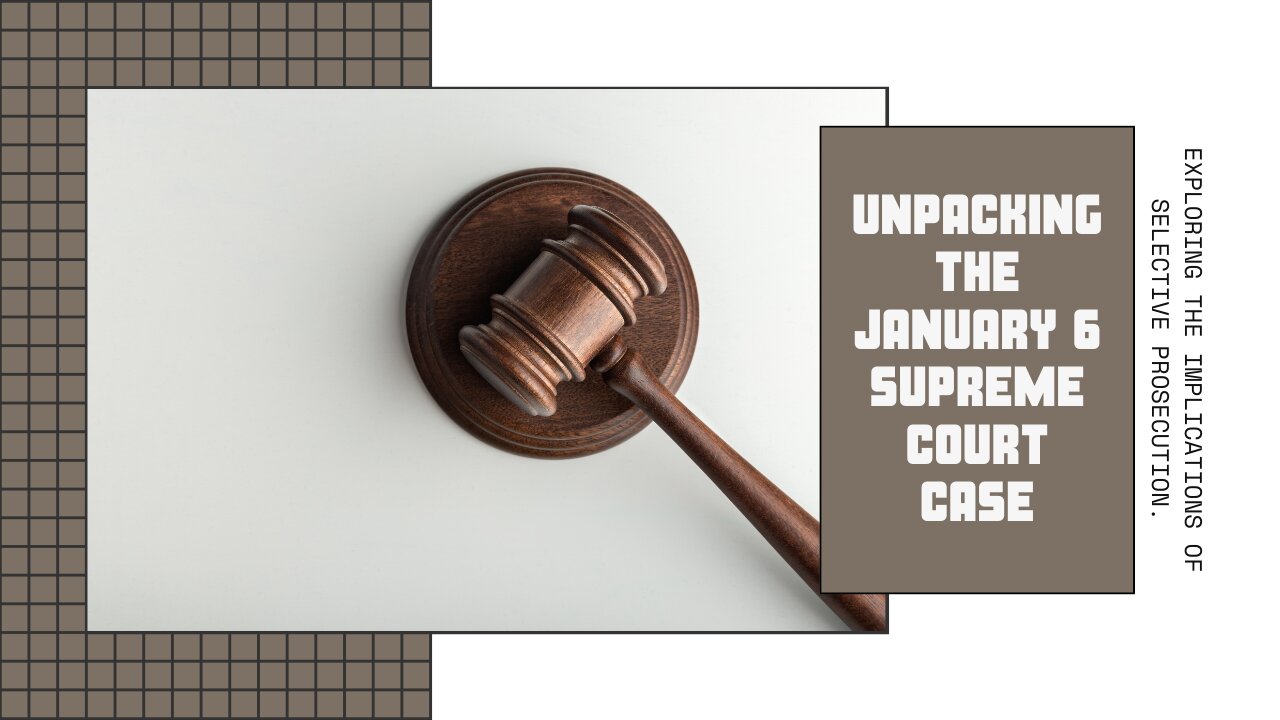
January 6 case comes down to selective prosecution
January 6 case comes down to selective prosecution
By Terry A. Hurlbut
Yesterday the Supreme Court heard oral argument on the first January 6 criminal case to reach that Court. More than 300 persons who allegedly entered the Capitol (or not!) on January 6, 2021 face a great many charges. Among these is obstruction of an official proceeding. But the statute behind that charge involves tampering with witnesses, judges, jurors, court staff – or evidence – in criminal proceedings. Never once has anyone prosecuted someone under this statute for obstructing a proceeding of Congress or either of its chambers. But yesterday the Justices singled out the most glaring weakness of the government’s case. Which is: various demonstrators – and one Democrat in Congress – have arguably done things in violation of the statute. Congressional and judicial proceedings have been subject to obstruction by such acts. Yet – none of them faced prosecution! This constitutes selective application of the law, which is never tolerable.
The January 6 event and the relevant considerations
On January 6, 2021, President Donald J. Trump held a rally, with anywhere from 100,000 to 200,000 people in attendance. He was twenty minutes late in beginning his speech. Toward the end, he spoke of people walking peaceably to the Capitol “to make your voices heard.” Never did he say anything about violence – except to condemn it when word reached him that violent altercations were taking place.
Violence did take place – after elements of the Capitol Police fired rubber bullets at an inoffensive crowd. The American people have known this since Rep. Michael Johnson (R-La.), Speaker of the House, released several hours of footage from Capitol security cameras. That footage also shows some peculiarly selective treatment of “protesters” in the Capitol. In fact the Capitol sustained remarkably little damage, aside from a few broken windows. Not one painting, sculpture, or other work of art suffered even the slightest damage.
This selectivity of treatment, plus recordings of provocative statements by persons (like Ray Epps) who didn’t face charges until very late, clearly show that this was a false-flag pseudo-operation. After that, the government laid on charges against hundreds of individuals, or perhaps as many as a thousand.
One of them – Joseph Fischer – has doggedly pressed his case all the way to the United States Supreme Court. Fischer v. United States, Docket 23-5572.
A financial-crime statute repurposed to punish January 6 protesters
Mr. Fischer entered the “restricted area” around the Capitol, probably because Ray Epps and his confederates cut the fence down. In fact he did not gain entry until after Congress had already recessed. Nevertheless the government charged him under, among other laws, 18 USC section 1512(c)(1 and 2). This title, part of the Sarbanes-Oxley law, reads in relevant part:
(c) Whoever corruptly — (1) alters, destroys, mutilates, or conceals a record, document, or other object, or attempts to do so, with the intent to impair the object’s integrity or availability for use in an official proceeding; or (2) otherwise obstructs, influences, or impedes any official proceeding, or attempts to do so, shall be fined under this title or imprisoned not more than 20 years, or both.
Senator Paul Sarbanes (D-Md.) and Representative Michael G. Oxley (R-Ohio) passed this law in the wake of the ENRON scandal. Their object was to punish people for shredding documents or doing anything else with the intent to obstruct justice. Here we have the first “stretch.” The only “records” anyone could have been trying to “alter, destroy, mutilate or conceal” were the lists of Electoral College votes to be presented to Congress for counting. No one has credibly alleged that anyone tried to tamper with those vote lists, or tried to change their contents. So the government suggested that the January 6 defendants “otherwise … attempt[ed] to … obstruct, influence, or impede” the joint session of Congress that, under the Constitution, takes place to count those votes.
On rebuttal, counsel for Mr. Fischer mentioned Subsection f, which reads:
(f) For the purposes of this section — (1) an official proceeding need not be pending or about to be instituted at the time of the offense; and (2) the testimony, or the record, document, or other object need not be admissible in evidence or free of a claim of privilege.
This language speaks of criminal proceedings, and the giving or presentation of testimony and evidence. Furthermore, Subsection e did not bear mention, and likely should have. It reads:
(e) In a prosecution for an offense under this section, it is an affirmative defense, as to which the defendant has the burden of proof by a preponderance of the evidence, that the conduct consisted solely of lawful conduct and that the defendant’s sole intention was to encourage, induce, or cause the other person to testify truthfully.
The argument
Mr. Fischer is arguing that he should never have faced a charge under Sarbanes-Oxley. But even so, he has the elements of an affirmative defense under Subsection e. No footage shows that he broke the law, other than being in a place where he shouldn’t have been – after someone removed the signs. Furthermore, his sole intention would have been to “encourage, induce or cause” the Vice-President to uphold election integrity. To do that he would need to disallow the electoral votes from Georgia, Pennsylvania, Michigan, Wisconsin and Arizona. But, for political reasons, Mike Pence did not do this.
None of this is relevant to Mr. Fischer’s case. The sole issue is whether a charge under Sarbanes-Oxley is appropriate. A federal district court threw out the charge. But a three-judge panel of the District of Columbia Court of Appeals voted 2-1 to reinstate the charges.
Mr. Jeffrey T. Green argued for Mr. Fischer. His first session with the Justices occupies 33 pages of the 123-page transcript. Solicitor General Elizabeth Prelogar had the next session – which occupies 72 pages. Then came Mr. Green’s rebuttal.
A grammatical question
Mr. Green’s case is that the word otherwise refers to conduct similar to the alteration, destruction, mutilation, or concealment of documents or records. Justice Clarence Thomas – who unaccountably absented himself from Monday’s oral argument session – began the questioning. He recognized that Mr. Green’s point is grammatical: what does otherwise refer to? More to the point: did Congress concern itself primarily with obstruction, influence, or impediment of official proceedings? Or did it worry mainly about alteration, destruction, mutilation, or concealment of written evidence?
Justice Thomas clearly was drawing out the second option. Justice Sonia Sotomayor apparently sought to quash that line of inquiry as irrelevant. Obstruction, influence, or impediment could include an obstreperous demonstration – like yelling (“Fire” or any other word) in a crowded theater to “impede” a stage performance or motion-picture showing. Justice Sotomayor went on to mention that mens rea (state of mind) need not be shown. Under Subsection g, that’s true – but Subsection g makes further references to criminal and other judicial proceedings, not Congressional proceedings.
None of that seemed to matter to the Liberal Bloc, or even to the Moderate Bloc – for Justice Amy Coney Barrett chose explicitly to include the vote-counting session as a “proceeding” within the meaning of Subsection c, paragraph 2.
Justice Alito’s clarifications
Justice Sam Alito sought one clarification. In US v. Reich, the Second Circuit Court of Appeals held that forging a court order fell under paragraph 2. Mr. Green agreed with that. Later, Justice Alito said Green “may be biting off more than [he could] chew” by saying that the only way to read the otherwise phrase is in relation to document tampering. But then Justice Alito said something else that at least one gloating reporter missed. “It is also possible to read a [phrase] like this more narrowly,” he said, citing Judge Katsas’ dissent from the reinstatement of the charges by the D.C. Circuit.
Mr. Green held firm, and cited two Latin “canons” of law:
• Ejusdem generis – of the same kind or class.
• Noscitur a sociis – one may know a thing by the company it keeps.
These two phrases point to the full language of Section 1512. The sections everyone quoted – and even sections no one quoted – all point to criminal cases, and evasion of punishment. They have nothing to do with the deliberations of Congress, either of its chambers, or any of their committees.
Justice Sotomayor tried to blunt the application of those canons. But she walked into an argument for them – when she mentioned the Enron scandal, the very context of Section 1512.
General Prelogar’s ordeal
Elizabeth Prelogar, arguing for the government, lost no time in accusing Fischer and his co-defendants of trying to “obstruct, influence, or impede” the vote certification. Of course she had to emphasize the “violence” of the “attempt.” If she hadn’t, Mr. Fischer would have “lawfulness of conduct,” one of the two elements of an affirmative defense. (The other is that he was just trying to “encourage, induce or cause” Vice-President Pence to do his job.)
Justices Clarence Thomas and Neil Gorsuch both weakened Ms. Prelogar’s argument on the key problem of selectivity of prosecution. Justice Thomas asked first whether the government had ever prosecuted anyone under Sarbanes-Oxley for obstructing a non-judicial proceeding. She said the government had – but could provide no example. The examples she did provide all involved attempts to beat a criminal rap. The cases might not have involved evidence tampering, but they did involve interference with grand jury and undercover investigations.
Chief Justice John Roberts reminded Ms. Prelogar that the ejusdem generis doctrine definitely applies. He even cited a recent unanimous opinion that elucidates it. Bissonnette v. LePage Bakeries Park St. LLC, 601 U.S. ____ (2024), decided April 12, 2024. As the court unanimously held, courts interpret generic terms at the ends of lists of specific items in light of elements they share in common with those specific items. By this reading, paragraph 2, with the word otherwise introducing it, must refer to paragraph 1.
Comparing January 6 to other protests that did not result in charges
Justice Gorsuch, after following up on Chief Justice Roberts’ application of ejusdem generis, proceeded to pose some hypothetical situations:
• A sit-in that disrupts a trial or obstructs access to a courtroom or courthouse,
• Heckling, either of the oral argument session or, say, the State of the Union address, or
• Setting off a fire alarm to delay a Congressional vote by provoking a pointless evacuation.
The problem that Ms. Prelogar could not solve was: each of these situations has occurred. Justice Brett Kavanaugh’s own confirmation hearings suffered delay from such sit-ins. Presidents often suffer heckling at their State of the Union addresses. And Rep. Jamaal Bowman (D-N.Y.) famously pulled the fire alarm in the Cannon House Office Building to delay a vote on a continuing resolution. None of the people involved faced any charges of any kind. So why did the government never prosecute in those cases?
Ms. Prelogar tried to suggest the government needed to show mens rea. But according to Subsection g, it does not. And per Subsection f, a proceeding need not be then taking place. (Though if it already has taken place, then it is un-obstruct-able.) In any event, Justice Gorsuch heaped scorn on the argument: “We went around that tree yesterday.” He probably was referring to the Court’s argument session in Snyder v. U.S. (23-108). Then he asked, equally scornfully:
So a mostly peaceful protest that actually obstructs or impedes an official proceeding for an indefinite period would not be covered?
That could refer to any of a number of BLM protests during the “Long Hot Summer” of 2020.
Refusing to admit other prosescutable offenses
Incredibly, Solicitor General Prelogar would not even admit that willful disruption of an oral argument session should be prosecutable. Perhaps the only reason why no such disruption actually occurred is the Court’s tight security protocols. Public seating for oral argument is limited, and the Supreme Courthouse is otherwise closed to the public on argument days. Justice Alito pressed the solicitor general very hard, particularly on the chargeability of mere impediment, short of actual obstruction. In fact, protests have occurred before – in the Supreme Courtroom – and no prosecutions have resulted.
He then postulated a protest shutting down the Anacostia, Wilson, and other bridges spanning the Potomac River. Such a protest might prevent an argument session or hearing because the Justices and/or lawyers living/based in Virginia couldn’t attend. (This could also apply to a Congressional proceeding.) Still she would not commit to prosecuting in that case. Even Justices Sotomayor and Ketanji Brown Jackson seemed to have problems with that argument. And Justice Barrett certainly had trouble accepting that.
As mentioned, Mr. Green, on rebuttal, destroyed all of General Prelogar’s arguments about requiring a “nexus” for prosecuting under Sarbanes-Oxley. According to Subsection f, the prosecution requires no such nexus. In closing, Mr. Green said the Court should consider carefully whether to entrust prosecutors with discretion in using a statute carrying a 20-year prison penalty.
Summary
Everyone who cares to know, knows that the January 6 event was a false-flag pseudo-operation. That was demonstrably not true of the particular events Justice Gorsuch described as hypothetical situations. More to the point, the government has never prosecuted under Sarbanes-Oxley for any offense other than an attempt to impair investigation or prosecution of a criminal case.
Thus the government has been selective in applying Sarbanes-Oxley in contexts other than large-scale fraud, embezzlement, and other such crimes. Specifically the government did not prosecute Rep. Bowman for pulling the fire alarm. Nor did anyone prosecute anyone who disrupted the Senate Judiciary Committee when it held hearings on Brett Kavanaugh. Nor has anyone prosecuted a heckler at the State of the Union Address. But the most stunning double-down was Solicitor General Prelogar’s refusal to prosecute, under Section 1512, any hypothetical group of protesters who shut down all the Potomac River bridges and possibly impeding various court trials and proceedings of Congress.
For those reasons, the Court is very likely to reverse the D.C. Circuit. It might even reverse on a 9-0 vote, with the Liberal Bloc filing concurrences. They’ve done it before – in Sackett et ux. v. EPA, for example.
Link to:
The article:
https://cnav.news/2024/04/17/news/january-6-case-selective-prosecution/
Fischer v. U.S.:
Docket:
https://www.supremecourt.gov/search.aspx?filename=/docket/docketfiles/html/public/23-5572.html
Oral argument transcript:
https://www.supremecourt.gov/oral_arguments/argument_transcripts/2023/23-5572_0pm1.pdf
Sound recording:
https://www.supremecourt.gov/media/audio/mp3files/23-5572.mp3
Declarations of Truth X feed:
https://twitter.com/DecTruth
Declarations of Truth Locals Community:
https://declarationsoftruth.locals.com/
Conservative News and Views:
https://cnav.news/
Clixnet Media
https://clixnet.com/
-
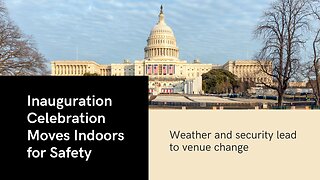 16:45
16:45
Declarations of Truth
8 days agoIndoor inauguration – two reasons
3003 -
 13:00
13:00
Exploring With Nug
6 hours ago $1.11 earnedHe Went To Get A Haircut And Vanished WIthout a Trace!
44.1K2 -
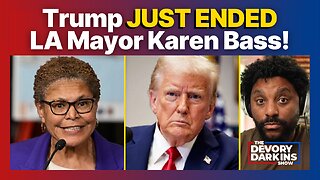 18:53
18:53
DeVory Darkins
1 day ago $8.09 earnedTrump JUST ENDED Mayor Karen Bass During HEATED Meeting
78.4K213 -
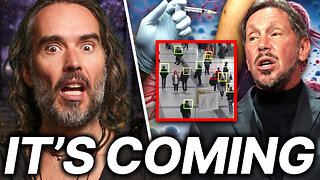 21:06
21:06
Russell Brand
10 hours agoIT'S COMING
134K466 -
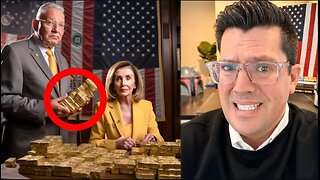 21:26
21:26
Stephen Gardner
1 day ago🔥What JUST leaked out of Congress must be STOPPED NOW!
132K281 -
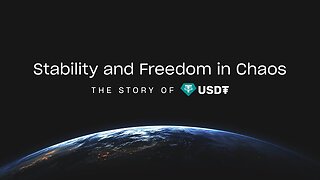 53:25
53:25
tether
11 days agoStability and Freedom in Chaos: The Story of Tether USD₮ | Tether Documentary (USDT)
144K5 -
 56:44
56:44
VSiNLive
2 days agoFollow the Money with Mitch Moss & Pauly Howard | Hour 1
80.9K2 -
 36:50
36:50
Anthony Pompliano
2 days ago $16.44 earnedInvestors Are ALL-IN On Bitcoin
73.5K20 -
 32:19
32:19
SB Mowing
9 days agoA Backyard She’s NEVER Seen – Now Safe for the Kids to Play!
67.6K29 -
![[Day 26] CS Blast bounty baby](https://1a-1791.com/video/fwe2/8a/s8/1/Z/H/j/_/ZHj_w.0kob-small-Day-26-CS-Blast-bounty-baby.jpg) 2:09:11
2:09:11
ggezlol_tv
14 hours ago[Day 26] CS Blast bounty baby
98.2K3